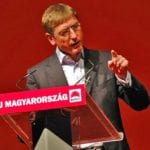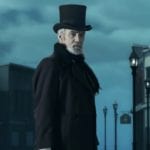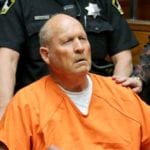 Movies and TV
Movies and TV  Movies and TV
Movies and TV  History
History 10 Extreme Laws That Tried to Engineer Society
 History
History 10 “Modern” Problems with Surprising Historical Analogs
 Health
Health 10 Everyday Activities That Secretly Alter Consciousness
 History
History Top 10 Historical Disasters Caused by Someone Calling in Sick
 Animals
Animals 10 New Shark Secrets That Recently Dropped
 Movies and TV
Movies and TV 10 Forgotten Realities of Early Live Television Broadcasts
 Technology
Technology 10 Stopgap Technologies That Became Industry Standards
 Weird Stuff
Weird Stuff 10 Wild Facts About Taxidermy That You Probably Didn’t Know
 Travel
Travel 10 Beautiful Travel Destinations (That Will Kill You)
 Movies and TV
Movies and TV 10 Box Office Bombs That We Should Have Predicted in 2025
 History
History 10 Extreme Laws That Tried to Engineer Society
 History
History 10 “Modern” Problems with Surprising Historical Analogs
Who's Behind Listverse?

Jamie Frater
Head Editor
Jamie founded Listverse due to an insatiable desire to share fascinating, obscure, and bizarre facts. He has been a guest speaker on numerous national radio and television stations and is a five time published author.
More About Us Health
Health 10 Everyday Activities That Secretly Alter Consciousness
 History
History Top 10 Historical Disasters Caused by Someone Calling in Sick
 Animals
Animals 10 New Shark Secrets That Recently Dropped
 Movies and TV
Movies and TV 10 Forgotten Realities of Early Live Television Broadcasts
 Technology
Technology 10 Stopgap Technologies That Became Industry Standards
 Weird Stuff
Weird Stuff 10 Wild Facts About Taxidermy That You Probably Didn’t Know
 Travel
Travel 10 Beautiful Travel Destinations (That Will Kill You)
10 Historical Speeches We Never Got To Hear
We love speeches. That’s why speeches like Martin Luther King Jr.’s “I Have a Dream” and John F. Kennedy’s “Ask Not What Your Country Can Do For You” are still referenced today. But there are plenty of important speeches that went undelivered for one reason or another. Some of them we would have loved to hear, while others are best left in the pages of untold history.
10The Queen’s Speech
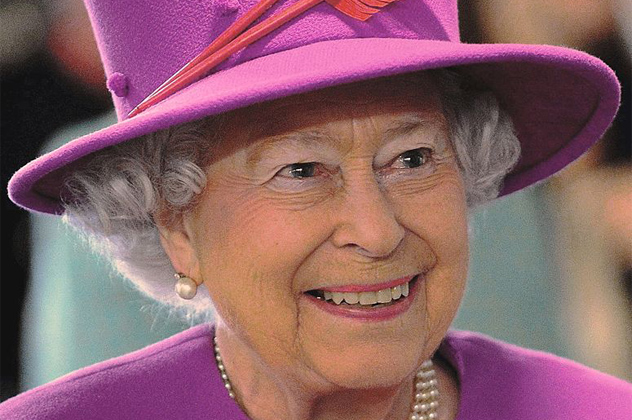
Documents released by England in 2013 after the 30-year rule had elapsed uncovered a planned speech for Queen Elizabeth II in the event of World War III. The speech, prepared by civil servants in 1983, was part of a NATO exercise code named “Wintex-Cimex 83,” meaning “Winter Exercise—Civil-Military Exercise.” The exercise was intended to see how prepared the West was if a nuclear war suddenly began. The address, written as if to be broadcast on March 4, 1983, showed how seriously the British took the nuclear war threat of the Russians during the Cold War.
The speech begins with a reference to the “horrors of war” that might have been on their way. It goes on to describe the war as “madness” and says that the brave country must be prepared to “survive against great odds.” The speech then talks about how awful the duty of delivering the speech was. She spoke to families about the common fear they all shared and how much she shared the same fear for her son, Andrew, who was serving the country. The speech ends with a somber message:
“My message to you therefore is simple. Help those who cannot help themselves, give comfort to the lonely and the homeless and let your family become the focus of hope and life to those who need it. As we strive together to fight off the new evil let us pray for our country and men of goodwill wherever they may be. God bless you all.”
9JFK’s Dallas Speech
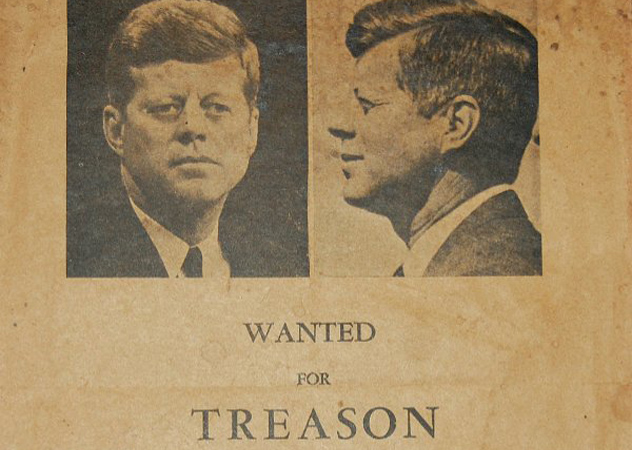
One speech we would have loved to have heard is the one John F. Kennedy was prepared to deliver to the Dallas Citizens Council at the Dallas Trade Mart the day he was murdered. Part of Kennedy’s speech was intended to call out those in Dallas who were opposed to his policies, ” . . . many of whom were in the audience.” The speech was an aggressive response to a caucus of Kennedy’s detractors—notably Joseph P. Grinnan, a local businessman who would go on to become the owner of the Dallas Cowboys and who had that morning attacked Kennedy in the paper. Other parts of the speech were intended to preach peace and give hope to the people of America.
A JFK monument was unveiled in Dallas on the 50th anniversary of his death. On the monument is the inscription of the last paragraph of Kennedy’s intended speech. The paragraph ended with this passage:
“We ask, therefore, that we may be worthy of our power and responsibility, that we may exercise our strength with wisdom and restraint, and that we may achieve in our time and for all time the ancient vision of ‘peace on Earth, good will toward men.’ That must always be our goal, and the righteousness of our cause must always underlie our strength. For as was written long ago, ‘except the Lord keep the city, the watchman waketh but in vain.’ ”
8Franklin Roosevelt’s Undelivered Jefferson Day Address
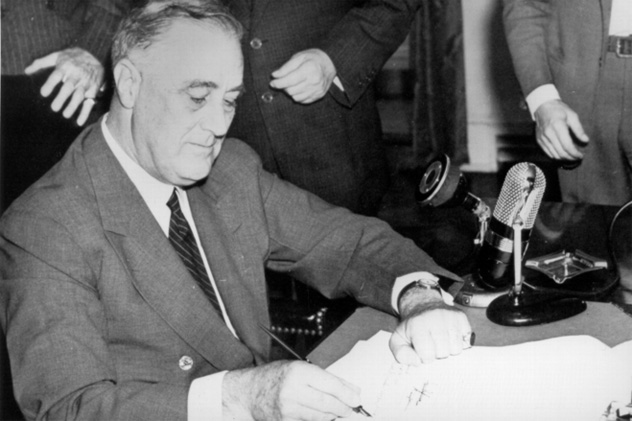
Recently ranked among the top three United States presidents, Franklin Roosevelt died after leading the nation through the Great Depression and most of World War II. Roosevelt’s shoes were so big for Harry Truman to fill that Eleanor reportedly told him that he was in trouble.
But one little tale was never told about the death of Roosevelt. A speech had been written for him to deliver the next day, which was Thomas Jefferson’s birthday. The speech acknowledged the great contributions Jefferson made to America’s growth. It also talked about the ongoing war, stating that the Nazi party was collapsing. The speech concluded with a call for peace:
“ . . . I measure the sound, solid achievement that can be made at this time by the straight edge of your own confidence and your resolve. And to you, and to all Americans who dedicate themselves with us to the making of an abiding peace, I say: The only limit to our realization of tomorrow will be our doubts of today. Let us move forward with strong and active faith.”
7The Monica Lewinsky Speech
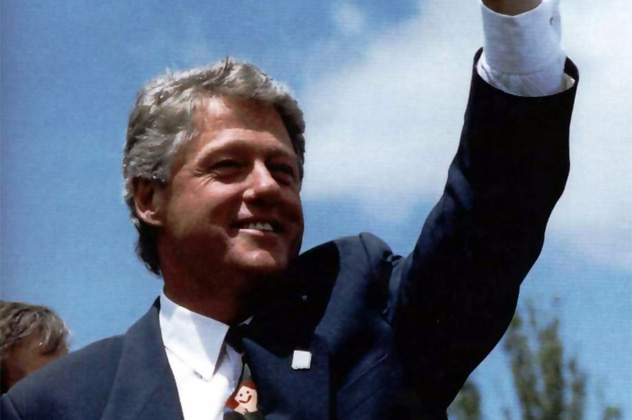
The Monica Lewinsky scandal is seen as one of few dirty scandals that marred Bill Clinton’s otherwise good presidency. The scandal and a lot of unfortunate remarks such as “it depends on what the meaning of the word ‘is’ is” made Clinton easy to make fun of. It was believed that the scandal also led to the loss of his party in the next presidential elections.
However, a lot of this might have been prevented had Clinton read a speech drafted for him on the Lewinsky scandal. The draft was presented to him, but he rejected it. It had Clinton apologizing for his wrongdoing and accepting his fault in letting the scandal go on for months without admitting his mistake. In the speech, Clinton claimed that he thought denying the Lewinsky scandal would shield his wife and daughter from pain. The speech ended with apologies to citizens of America and a promise to earn their confidence and faith again.
“Finally, I also want to apologize to all of you, my fellow citizens. I hope you can find it in your heart to accept that apology. I pledge to you that I will make every effort of mind and spirit to earn your confidence again, to be worthy of this office, and to finish the work in which we have made such remarkable progress for the past six years. God bless you and goodnight.”
6Benigno ‘Ninoy’ Aquino Jr.’s Speech
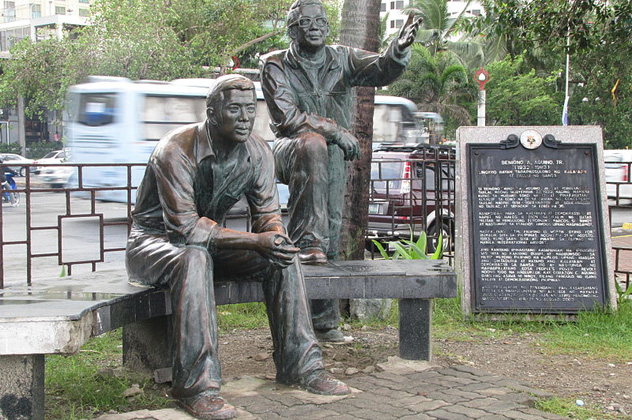
The death of Benigno Aquino Jr. is aptly referred to as the “mother of all Philippine conspiracy theories” owing to the fact that his death was never solved. His death propelled one of the biggest political changes in the whole of the Asian hemisphere when his wife, an inexperienced politician, defeated Marcos, the country’s evil dictator. Benigno was assassinated at the Manila International Airport after returning from the United States, where he had gone for surgery.
Little was known about the speech Aquino Jr. intended to deliver on his arrival at Manila. In the speech, Benigno shared his dream for the Philippines: freedom from Marcos’s oppressive regime. Also in the speech, Benigno stated that he could have opted for asylum in America but felt it was his duty to suffer with every other Filipino in a time of crisis. The speech ended with the inspiring words:
“How shall freedom be defended? By arms when it is attacked by arms; by truth when it is attacked by lies; by democratic faith when it is attacked by authoritarian dogma. Always, and in the final act, by determination and faith. I return from exile and to an uncertain future with only determination and faith to offer—faith in our people and faith in God.”
5Lincoln’s 1864 Speech
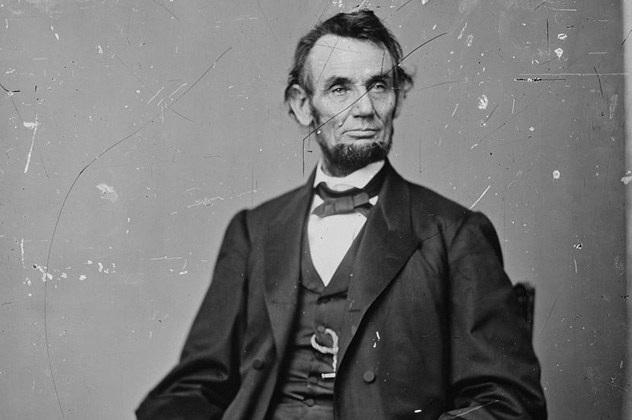
The road to Abraham Lincoln’s re-election in 1864 was a lot rougher for him than we once believed. For one, Lincoln was not even sure of his re-election chances. He once told a White House visitor: “I am going to be beaten . . . and unless some great change takes place, badly beaten.” At that time, the Republican party was on shaky ground as Salmon P. Chase, Lincoln’s treasury secretary, was secretly campaigning against him and prominent Republicans such as Elizabeth Cady Stanton and Frederick Douglass. Lincoln had a speech written in case he lost the 1864 election, which, according to the speech, he believed he had already lost. In the short speech, Lincoln stated that he would cooperate with the president-elect and help him save the Union before the inauguration.
“This morning, as for some days past, it seems exceedingly probable that this Administration will not be re-elected. Then it will be my duty to so cooperate with the President elect, as to save the Union between the Election and the inauguration; as he will have secured his election on such ground that he cannot possibly save it afterwards.”
4‘A Short Guide To A Happy Life’
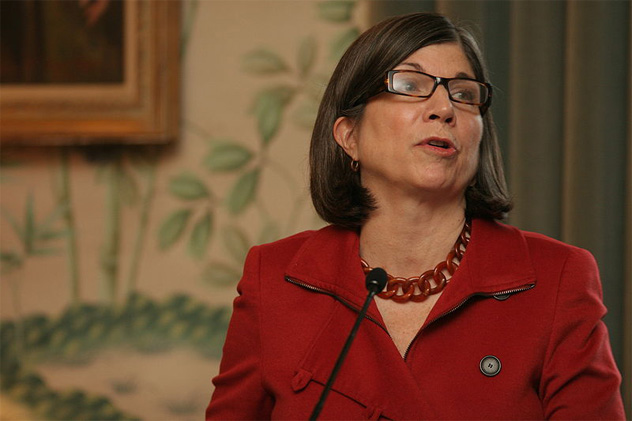
When former New York Times columnist and famous bestseller Anna Quindlen was asked to deliver the commencement speech in 2000 at Villanova University, she could not have expected the backlash she got from the students. Villanova University, a staunchly Catholic school, was not particularly fond of Quindlen’s views, especially on abortion. With threats of protests likely to mar her commencement speech, Quindlen decided to cancel her planned speech. One student, however, disappointed that Quinden did not make the appearance, requested a copy of her undelivered speech.
Quindlen’s speech, titled “A Short Guide to a Happy Life,” was quite inspirational, with advice to students to seek out a life worth more than the pursuit of promotions and paychecks. She also advised them to appreciate the little things of life. She ended the speech with an experience she once had with a homeless man who refused to seek shelter because he loved the view of the ocean.
“And I asked him why. Why didn’t he go to one of the shelters? Why didn’t he check himself into the hospital for detox? And he just stared out at the ocean and said, ‘Look at the view, young lady. Look at the view.’
And every day, in some little way, I try to do what he said. I try to look at the view. And that’s the last thing I have to tell you today, words of wisdom from a man with not a dime in his pocket, no place to go, nowhere to be. Look at the view. You’ll never be disappointed.”
3Eisenhower’s D-Day Failure Speech
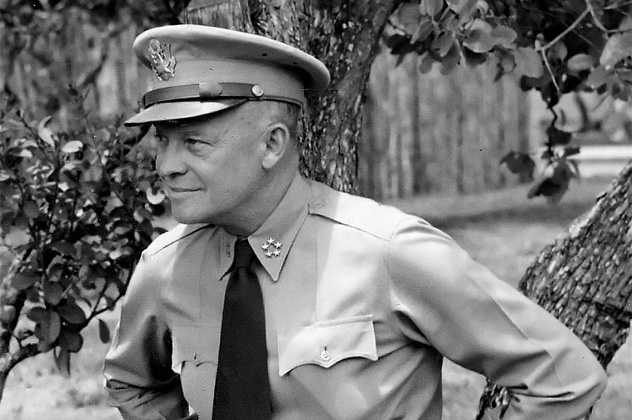
The Normandy landing, commonly referred to as D-Day, was the battle that turned the tide during World War II. If D-Day had failed, it was possible that General Eisenhower would have offered his resignation, President Roosevelt would have lost the elections, and thousands of additional Allied soldiers would have lost their lives.
Although Eisenhower was optimistic that the invasion would be a success, he had a speech written down in case the invasion failed. The speech was written on a small piece of paper and handed over to Eisenhower’s Adjutant Officer, Captain Butcher, a month after the invasion. The note showed that Eisenhower planned on taking full responsibility for the failure of the invasion.
“Our landings in the Cherbourg-Havre area have failed to gain a satisfactory foothold and I have withdrawn the troops. My decision to attack at this time and place was based upon the best information available. The troops, the air and the Navy did all that Bravery and devotion to duty could do. If any blame or fault attaches to the attempt it is mine alone.”
2Churchill’s Undelivered Speech
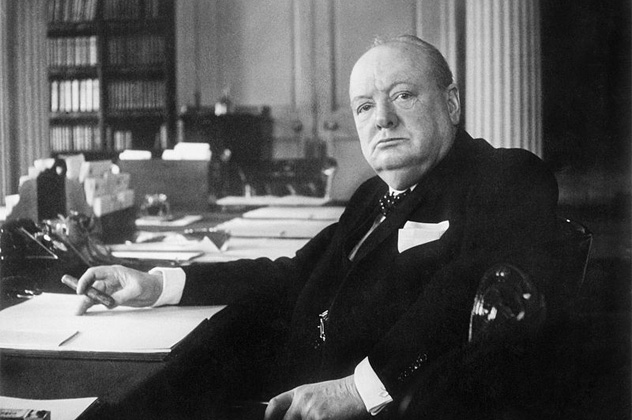
On March 29, 2011, an undelivered speech by Sir Winston Churchill was put up for sale by the Roy Davids Collection of Papers and Portraits. The speech, dated September 1959, was signed by Churchill himself. It was planned to be delivered at his Adoption Meeting as parliamentary candidate for the Woodford constituency on November 29 that same year.
In the speech, Churchill encouraged British citizens to work hard to earn their means and to seize any opportunities as they came by. Also preaching peace, he showed optimism in the future of science. Instead of the original speech, though, Churchill gave a completely different one titled “Vote Conservatives.” An excerpt from the undelivered speech reads:
“Peace can never be secured by sacrificing vital principles or interests. We can catch at any rate promising glimpses of that better world of which mankind has long dreamed and for which it has long toiled when science can unlock for all the people a vast storehouse of richer living. That is the vision which must inspire us with hope and stimulate us to new endeavours.”
1Condoleezza Rice’s 9/11 Speech
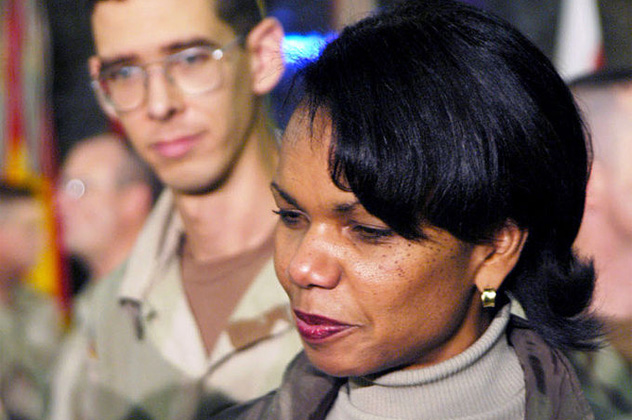
On September 11, 2001, National Security Adviser Condoleezza Rice was supposed to give a speech about security at the School of Advanced International Studies of Johns Hopkins University. She never got the chance. What later riled some people was that Rice’s undelivered speech was not focused on terrorism; rather, it promoted the use of missile defense systems.
Critics suggested that by not including the name of Osama bin Laden or Al-Qaeda in her prepared speech, the White House was not focused on the threats posed by terrorism—a suggestion Jim Wilkinson, then–Deputy National Security Adviser for Communications, disregarded. Rice would later deliver a speech at the School of Advanced International Studies at Johns Hopkins University in 2002, but it was entirely different than the one she’d planned to deliver on September 11, 2001.
An excerpt from the undelivered speech reads:
“In May the president appointed Vice President Cheney to oversee a coordinated national effort to better protect the U.S. homeland against a terror attack using WMD. But why not missile defenses as well?”
+The Moon Speech
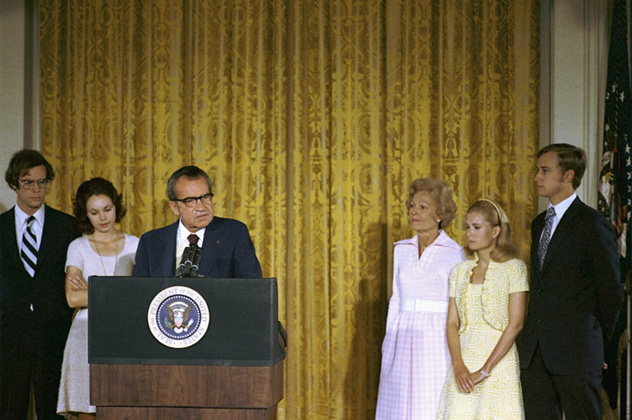
Have you ever wondered what would have happened if the Moon landing had failed and astronauts Neil Armstrong and Buzz Aldrin could not make it back to Earth? Well, William Safire, President Nixon’s speechwriter, wrote a speech to be delivered to the people of America in case that happened. Considering how little we knew about spaceflight at the time, it was reasonable to think that a lot could go wrong.
The speech, titled “In Event of Moon Disaster,” was meant to be read only after Nixon had called and told the widows-to-be of the astronauts’ demise. NASA had planned to end communications with the men before they died, and a clergyman was to commend their souls to “the deepest of the deep” before finishing with the Lord’s Prayer. We’re glad Nixon never had cause to deliver this speech, judging by its chilling ending:
“In ancient days, men looked at the stars and saw their heroes in the constellations. In modern times, we do much the same, but our heroes are epic men of flesh and blood. Others will follow, and surely find their way home. Man’s search will not be denied. But these men were the first, and they will remain the foremost in our hearts. For every human being who looks up at the moon in the nights to come will know that there is some corner of another world that is forever mankind.”
Elizabeth is an aspiring writer and newbie blogger. You can like her blog’s Facebook page and also follow her on Twitter where she’ll be dropping interesting facts on a daily basis.

